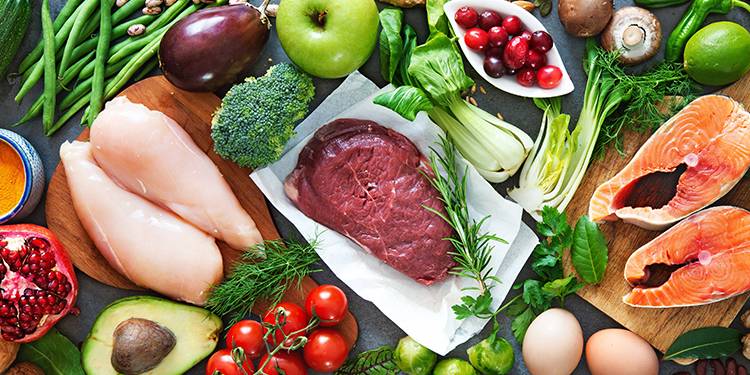Benefits of minerals: the 'gear' for a healthy and balanced body
Much is said about vitamins, proteins, carbohydrates or sugars, but without minerals, our body would not function properly. They’re responsible for keeping the body healthy and balanced, ensuring the formation of bones, the transport of oxygen in the blood or the production of hormones.
health and beauty
Share
Minerals are natural inorganic elements, essential to the body, found in many foods in our diet. They’re classified into macrominerals, which we need in greater quantity, among which are calcium, phosphorus, potassium, magnesium, chlorine, sulphur and sodium; and trace elements, which we need in small amounts, such as copper, iron, iodine, manganese or zinc.
The main properties of minerals are:
- Carrying oxygen in the blood.
- Bone formation
- Muscle tone regulation.
- Body fluid balance.
- Hormone production.
- Heart rate regulation.
- Favour digestion.
- To have energy and to be able to think.

10 essential minerals
1. Boron: with this we metabolize nutrients and it’s fundamental for muscular thought and coordination. It's in nuts, asparagus, apple, honey and tomatoes.
2. Calcium: is found mainly in bone tissue and acts on the contraction of the heart and theproper functioning of nerves and muscles. It’s in milk and its derivatives, but also in leafy green vegetables (cabbage, broccoli, kale, turnips or kale), salmon, sardines, nuts (almonds or sunflower seeds) and dried legumes.
3. Phosphorus: is the second highest concentration of minerals in our body, after calcium. In fact, it favorsits use, although its main function is the storage and release of energy, it also favors the proper functioning of theparathy roid gland, which is in the neck. It's in meat, liver, fish, milk, soy, oats, whole wheat bread and cereals.
4. Iron: provides us with the nutrients necessary for the formation of red blood cells,without which we may have anaemia. It'sin the liver, red meat, egg, beans, nuts, legumes and some vegetables.

5. Potassium: balances the effects of sodium on blood pressure and acts on the central nervous system to function well, communicating nerves and muscles. Sodium and potassium are related to the body's fluid balance. Necessary to produce insulin. It's in red meats and fish (like sardines and tuna), brown rice,soy beans, vegetables (like spinach), carrots, potatoes, grapes, blackberries, bananas and oranges.
6. Magnesium: essential component of bones and teeth, regulates cellular metabolism, protein synthesis and muscle contraction. It'sin fish, green leafy vegetables, sesame and sunflower seeds, whole grains and nuts.
7. Sodium: regulates the amount of water in the body and is necessary to fight infectionsand produce hydrochloric acid in the stomach, for digestion. It's in meats, cheese, seafood, sausages, tuna and bread. Sodium chloride is essential for theproper functioning of the central nervous system and muscles. It's table salt.
8. Iodine: indispensable for the proper functioning of the thyroid gland and plays a keyrole during pregnancy. It’s in fish, shellfish, seaweed, milk and milk products, eggs, cereals, common salt and some fruits and vegetables.
9. Zinc: helps the immune system work properly, for wound healing, improves bone, skin and hair health and is a great antioxidant. It's in pork and lamb, fish, oysters, legumes, yeast, bran and nuts.
10. Sulfur: provides essential amino acids that the body doesn’t produce. Foods: cheese, legumes, onion, garlic, nuts, red meat and legumes.

Toallitas húmedas
¿Cuántos tipos hay y para qué sirven?
Toallitas húmedas






